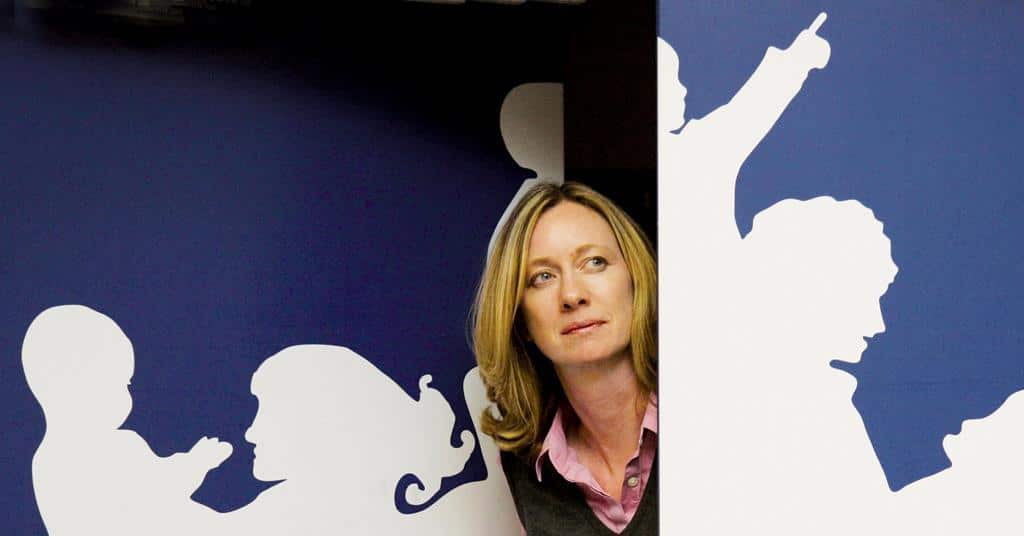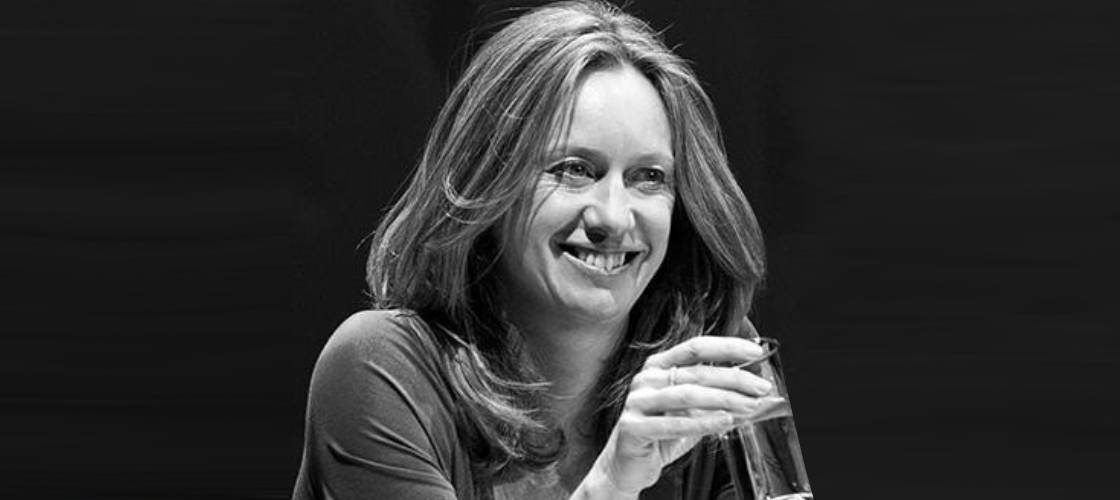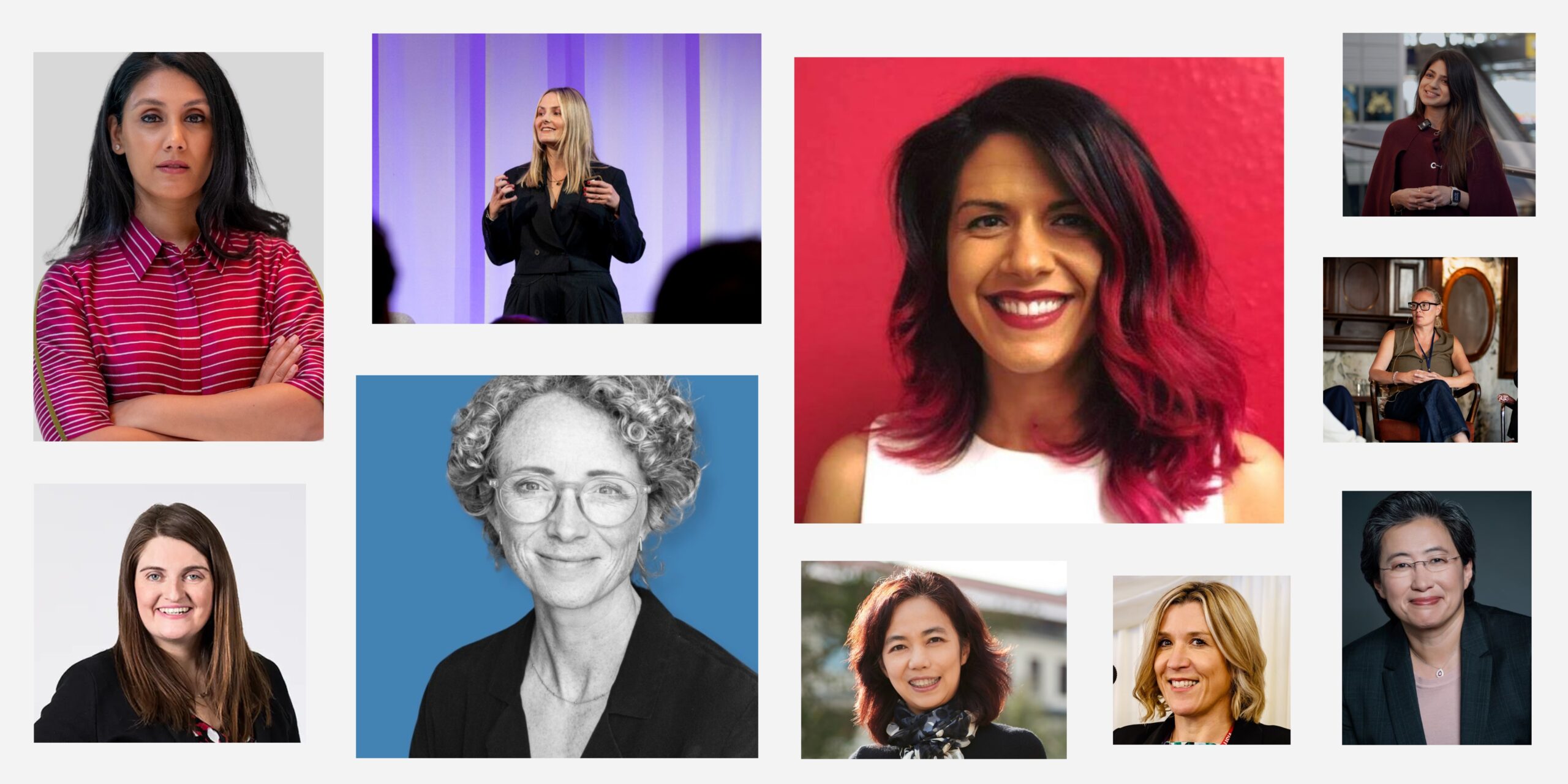In this exclusive interview, Justine Roberts CBE, founder and CEO of Mumsnet, shares her insights on breaking into male-dominated industries, the realities of entrepreneurship, and the importance of supporting working parents. Justine’s journey from a sports journalist in London to building the UK’s most popular online community for parents is a testament to her resilience and vision. At Women in Tech, we believe her experiences and advice are invaluable, particularly when it comes to fostering inclusive work environments that support flexibility and balance – key aspects for women, especially parents, navigating careers in tech. In this interview, Justine discusses the importance of proving people wrong in male-dominated spaces, the lessons learned along the way, and her thoughts on how businesses can better support working parents.
Mumsnet Founder and working parents advocate
Justine Roberts CBE is the founder and CEO of Mumsnet, the UK’s most popular online network for parents, and Gransnet, its sister site for the over-50s. Leaving behind a career in the city and sports journalism, Justine launched Mumsnet in 2000 from her back bedroom, creating a trusted platform that now attracts millions of users each month. Recognised for her pioneering work in digital communities and flexible working advocacy, she was appointed CBE in 2017 and has featured in numerous power lists, including The Guardian‘s Power 100 and BBC Radio 4’s Woman’s Hour 100 most powerful women. In 2025, she was named one of the inspirational female icons to follow, cementing her status as a leading voice for women in business and an enduring champion of parents navigating modern life.
Leadership in male-dominated industries: Justine’s journey
Q: What guidance or encouragement would you offer to women navigating male-dominated workplaces?
Justine: “Well, I’ve worked in two very male-dominated environments. I worked in London, initially on the stock exchange floor, where I was one of two women—hundreds of men—and then I became a football and cricket journalist.
“I think the world’s moved on a bit, because it’s not so normal now to be in such a minority. I think generally, what I found was you’ve got to be as good as—actually, in fact, better than the men around you. It’s not always fair, but there’s no point moaning about it. You’ve just got to get on and really address that conscious and unconscious bias by proving people wrong.
Building support networks
“I think, as I say, nowadays it’s a bit better. What I would always suggest you do is find your network. Particularly if there are women around, make sure you’re supporting each other, because the guys will be supporting each other.
“Work hard, find your network, and don’t get downhearted, because the only way we change things is by buckling down and getting to the top.”
Q: When you speak to people about your career, what are the key takeaways?
Justine: “I would like people to realise that entrepreneurs are not born. You don’t have to see yourself as the winner of The Apprentice to start and run a business. It’s a journey—one where you grow and learn all the time.
“I still pick up valuable lessons, constantly! I think this is especially true for women. Men sometimes claim they are entrepreneurs just by opening a cupboard door. Whereas I’ve always felt uncomfortable calling myself an entrepreneur, because I just think, ‘Oh, well, I just created something that responded to my own need.’
“The truth is that a bit more humility would go a long way. People who think they know it all and can do it all before they’ve even got started, usually end up falling flat on their face. Frankly, none of us do. None of us know it all—we’re all going to make mistakes.
“It’s not about avoiding mistakes; it’s about learning quickly and being humble enough to keep learning.”

The importance of flexibility for working parents
Q: What are the most effective ways businesses can support working parents within their organisation?
Justine: “The number one thing I think parents want from business and their employer is flexibility. All our surveys [from Mumsnet] say that it is more important than anything else. The flexibility to be honest and say, ‘Actually, my family comes first. Yes, I love my job, but it’s always going to take second place to my family.’
“When I started Mumsnet, I literally started it because I felt I couldn’t be honest. In my previous careers, I saw mothers I worked with pretending that their kids didn’t exist. So, I think allowing that level of honesty is crucial.
How businesses can better support parents in the workplace
“I think then it’s about focusing on flexibility. Walk in the shoes of the people you’re trying to support. If you have employees going off on parental leave, make sure, for instance, they feel confident when they come back—because they’ve been kept in touch with things and not everything has completely transformed while they’ve been away.
“It’s about understanding that, if you’ve got people working part-time, be flexible and schedule meetings in the middle of the day or when they’re around—don’t schedule meetings when they’re not. Try not to make everything about what happens in the pub after work, because parents must go back and do bedtime!
“It’s some basic stuff, but it’s about putting yourself in the shoes of your colleagues and trying to show some basic understanding.”
Advice for women in entrepreneurship
Q: What’s one piece of advice you wish you could give your younger self?
Justine: “Well, the sensible piece of advice I’d give is don’t listen to the naysayers and have a bit more self-confidence. Basically, don’t second guess yourself too much.
“My other piece of advice—almost equally important, I think—is to always wear trainers. It means that if you’re late for meetings, you can run and get there on time, you will save a fortune on gym membership, and you won’t ruin your feet!”
This interview with Justine Roberts of Mumsnet was conducted by John Hayes.




